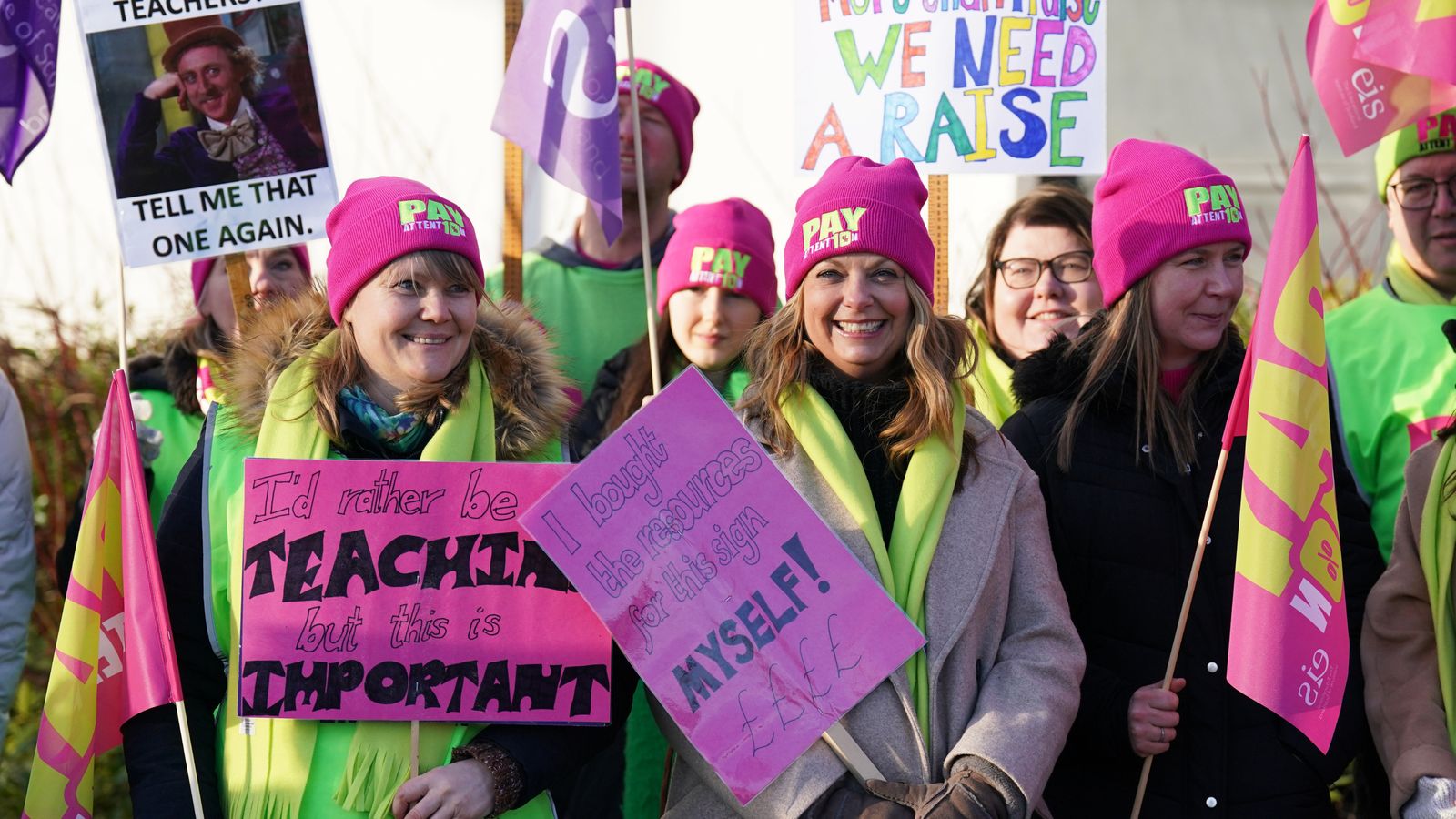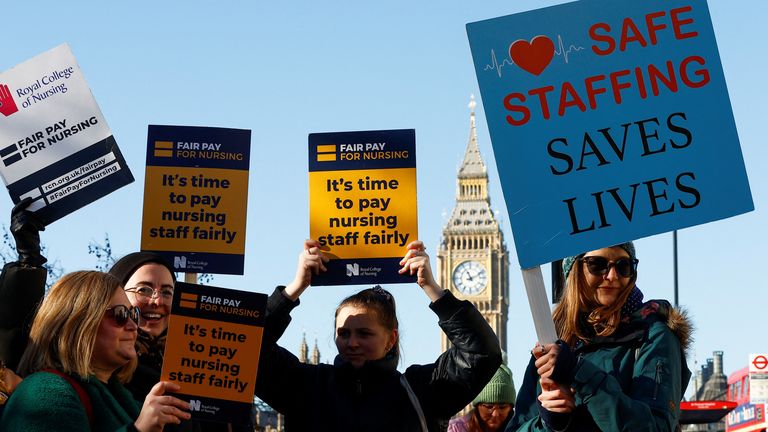The number of working days lost to strike action totalled 843,000 in December, bringing the total number of strike days from June to December 2022 to 2,471,000, the highest since 1989, official figures show.
There were 4,129,000 days lost to strike action in 1989 due to industrial action by rail workers and coal miners, the Office for National Statistics (ONS) said.
The loss in days due to labour disputes in December is the highest since November 2011 when public sector workers striked over pensions. That month saw 997,000 working days lost.
The days lost last year up to November had already reached a high not seen since 1990 when there were 1.9 million days lost.
It’s come mostly due to strikes by train and Royal Mail workers, the ONS said.
“Transport and communications remained the most heavily affected area, but this month there was also a large contribution from the health sector, ” Darren Morgan, director of economic statistics at the ONS said.
Despite data showing wage rises, people are still earning less as the rise failed to keep pace with inflation at 10.5%.
Wage rises were split by sector with pay for private sector workers continuing to be above the increases public sector workers received.
Those in the private sector had their pay upped by 7.3% compared with 4.2% in the public sector.
Outside of the height of the COVID-19 pandemic era, this is the largest growth rate seen for the private sector.
Unemployment remained steady at 3.7%, just up from a low not seen since 1974.
But the number of people neither working nor seeking work – classed as economically inactive – dipped to 21.4% from 21.7% in the previous three-month period. But it is still higher than the pre-pandemic figure of 20.2%.
Responding to the figures, Labour’s shadow chancellor, said:
Click to subscribe to the Sky News Daily wherever you get your podcasts
“Britain has huge potential – but 13 years of the Tories has left real wages down, families worse off, and our economy lagging behind on the global stage. The government needs to stop sitting back and following this path of managed decline,” Rachel Reeves said.
“Labour will get people back into work, with our real plan for growth to create good, new jobs across every part of our country.”
Chancellor Jeremy Hunt responded to the data by saying: “In tough times unemployment remaining close to record lows is an encouraging sign of resilience in our labour market.
“The best thing we can do to make people’s wages go further is stick to our plan to halve inflation this year.”

